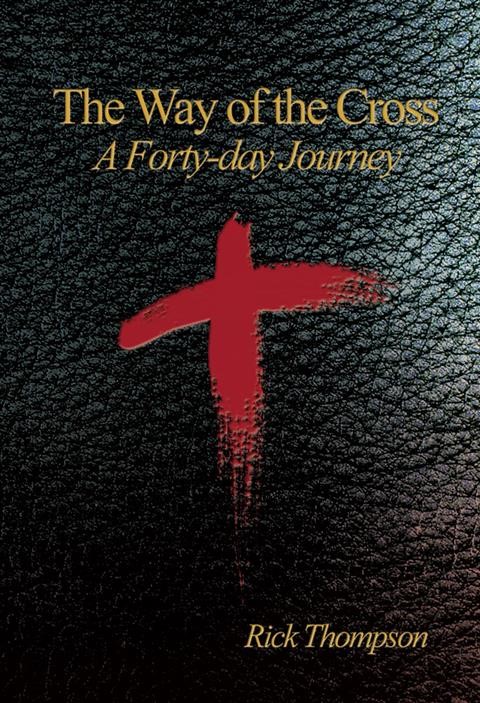
by Angela Sanders | Mar 27, 2019
“You’re up!” they say. “Get in there!”
They’re right. You
agree. You want to.
Or maybe you see the opportunity and no one else does.
Deep down, you know God is calling you up again to use the
talents, gifts, abilities, and experiences He’s given you for the sake of His
Kingdom and glory.
But…
Maybe it’s been a while.
Maybe you weren’t asked.
Maybe the task is new and you feel old.
Maybe you’re used to playing the lead, but this is a
supporting role.
Maybe things didn’t go as well as you wanted them to last
time.
Maybe people criticized, challenged, or competed with you,
people who should have helped you out or, at the very least, supported and
encouraged you.
Maybe you think you made things worse instead of
better.
Whatever the case, I assure you I’ve been there.
Oh, occasionally, it seems the hearts of others might have
been lit by the spark God ignited in mine, but most of the time, human response
to my efforts falls short of what I hoped for or envisioned, and I’m left
feeling like I don’t quite measure up to human standards.
That’s okay.
God calls us to a different standard—Jesus Himself—and has
promised to complete what He began in us (Phil. 1:6). All we have to do is cooperate, continue to do
the things that come supernaturally to those who have the Holy Spirit in their
lives as a result of their faith in the Gospel, applying that same faith day by
day, hour by hour, moment by moment and trusting the God who gave it to bring
the harvest (Rom. 1:5, Eph. 2:8-9, 1 Cor. 3:7).
Compliments.
Recognition. Applause. These are nice. They feel good when you get them, but they quickly
fade to memory. When you work for them,
you only make your imperfect self God’s opponent in a glory contest you cannot possibly
win, a wasted effort.
Unconditional surrender.
Submissive service. Sincere
worship. These may not earn you a pat on
the back or a star on the walk, but they are investments in something eternal, God’s
Kingdom. When you practice them, you give
holy God His due and set your own heart at rest by proving your faith genuine, your
salvation real, and your future secure (1 John 2:3-6; 2 Pet. 2:5-11). What could possibly be better?
Listen, friend, you don’t have to be awesome at what God tells
you to do—He’s got ‘awesome’ covered! You
don’t even have to be chosen by your brothers and sisters. All you have to do is finish the race God has laid out for you like you began
it, in faith, and give every obedient effort what He’s worth (Eph. 2:10).
No, you won’t ‘wow’ everyone, but you will please God (Heb. 11:6, John 14:23). Given Who He is and what He’s done, that’s way more than enough.
Now, what are you waiting for? Get in there!

by Amy Spear | Mar 26, 2019
And
Simon answered, “Master, we toiled all night and took nothing! But at your word
I will let down the nets.”
Even while doubting in his heart and not understanding
how it would be worth the effort, Simon Peter obeyed.
It makes me feel good, knowing that someone so close to
Jesus could still doubt before obeying.
You see, each time the Lord asks me to obey, my flesh
wants to push back and disobey. I want to make excuses, come up with reasons
why what the Lord is asking me wouldn’t work. I begin to doubt my own ability
and worry about what others might think.
Honestly, I doubt that God truly has everything under
control.
Sometimes I hear Him clearly, yet I play that game in my
mind—oh you know the
one—when you ask yourself, “Was it really a God idea or my idea?” And then you
sit and wait and wait…
Yet Peter (still called Simon at this point) simply
obeyed even while doubting Jesus’ abilities.
Scriptures point out they had fished all night long yet
got nothing in return. I can feel the same way with the tasks God has called me
to do. Working long and hard to obey and do what He has asked yet getting
nothing in return.
“Lord, I don’t know why you want me to talk to them
again. I have talked until I’m blue in the face and they won’t listen.”
“Lord, I don’t know why you want me to keep teaching
this Bible study. I don’t see any change in my students’ lives.”
“Lord, why do you want me to keep doing laundry? These
clothes just keep piling up!”
“Lord, why should I forgive them over again? I know
they are going to continue to do it and continue to hurt me.”
“Lord, my quiet time is stale, and I feel like you are
distant from me. Why should I keep trying to hear from You?”
Yet, he (Peter) obeyed.
“When they had done so, (casted their nets on the other side of the boat like Jesus asked) they caught such a large number of fish that their nets began to tear. So they signaled to their partners in the other boat to come and help them, and they came and filled both boats so full that they began to sink.
When Simon Peter saw this, he
fell at Jesus’ knees.
“Go away from me, Lord,” he said, “for I am a sinful man” (Luke 5:6-8).
After Jesus performed a miracle, Simon Peter fell at the feet of Jesus in shame of his doubt, realizing his sin, in contrast to this God man, whom even the fish of the sea obey!
What man toiled all night to make happen, Jesus simply
spoke. More than they could ever hope for materialized before their very eyes!
Because of his obedience, Jesus changed his entire
future!
“Do not be afraid,” Jesus said
to Simon, “from now on you will catch men.” And when they had brought their
boats ashore, they left everything and followed Him (Luke 5:10-11).
No longer was Simon Peter going to be a fisherman, but
he was going to fishing for men, lost men drifting in a sea of darkness,
bringing them into the safety net of Jesus Christ, the one true light of the
world!
Now, let’s not overlook Simon Peter’s response. After
all, he had a choice to make. 1) Was he going to follow this Jesus or 2) Was he
going to take the biggest catch of his life, sell it for money and keep living
life as usual (just a little richer)?
This encounter with Jesus changed him. Simon no longer
cared about fishing. He only wanted to know Jesus more and obey him.
You see, when we obey, even in our doubt, God brings
about change in our lives. It may not be change that instantly manifests itself
like it did for Peter, but how many long nights of fishing did he have to go
through before this night? How long had he scrapped by, barely making ends meet?
When we obey, God blesses.
Only Jesus can make a miracle. Only Jesus can bring to
life something that was once dead. Maybe the time for new life hasn’t come yet.
Maybe the miracle is in the waiting or just around the corner.
But rest assured, it’s coming, and His timing is
perfect! For at the proper time we will
reap a harvest if we do not give up (Gal. 6:9).
Hang on to that promise today!

by Brian Hobbs | Mar 19, 2019
Oklahoma’s Oral Roberts University is known
for having the world’s largest praying hands sculpture, according to some.
Standing some 60 feet tall, these folded hands are definitely a sight to
behold.
The sight of praying hands, though, is not
limited to a bronze statue in Tulsa. They are now seen in everyday life through
text messages, social media posts and more, with the sudden rise of the “folded
hands/praying hands” emoji.
This simple symbol is most often used to
mean, “I’m praying for you…” (Or other times, “I’m grateful”).
I find myself using this emoji more and more.
There recently was a backlash on social media to people using this emoji or commenting,
“I’m praying for you” after a tragedy strikes. Cynical people across the
Internet rejected that emoji and phrase as insincere. To some degree, I am
confident they were right; that for some, it was just something to say in a
difficult situation.
I must admit that I have been guilty of using
the prayer hands but not actually praying (or not praying fervently at least). At
the same time, I think most people who say “I’m praying for you” or use that
emoji really want to be supportive and many times really do wish to seek the
Almighty’s help in the situation.
So how can we do better to align our beliefs
with our actions? One life hack I have learned is to pause and pray for that
individual or family, before I ever let them know I’m praying for them. Another
simple step is to avoid using the emoji altogether, if it is not true, but to
use the urge to use it as a cue to pray.
The Bible gives Christian believers this
admonition: “Rejoice always, pray without
ceasing, give thanks in all circumstances; for this is the will of God in
Christ Jesus for you” (1 Thess. 5:16-18 ESV). The Bible also tells us to beware
of doing our acts of righteousness to be seen by people (Matt. 6:1).
The next time you are tempted to do the praying
hands emoji, do this: Pause, Reflect and Pray. Then, if you feel led to let
that person know you are praying, go ahead and send a prayer gram and the
emoji. In so doing, we may all find ourselves doing a little more praying and a
little less posturing.

by Brian Hobbs | Mar 13, 2019
In
our social-media saturated world, it is easy to get caught up in the talk of
the day. From Hollywood celebs news to the latest click-bait story about
President Trump, we live on a sort of treadmill of news that is always going,
but perhaps not always going somewhere.
That
is partly why Christians today must be more intentional on training ourselves
spiritually, physically and mentally (Luke 10:27; 1 Tim. 4:8) for service in
God’s Kingdom. It’s that last component—cultivating the mind—I want to focus on
today.
Allow
me to do so by drawing attention to the internationally beloved author and
Christian apologist, C.S. Lewis, who “preached the sermon ‘Learning in
War-Time’… on Sunday, October 22, 1939,” which has much to say on this topic.
To
think about Europe in 1939, when Lewis delivered the message, is to think about
the “storm clouds of war” of which Churchill spoke. With a whole world on the
brink of war, why think about anything else, especially long-term endeavors
like cultivating learning?
That
is what makes Lewis’ bold defense of educational and learning pursuits come at
a time when many thought such “pursuits were unnecessary in the light of the
war, or worse, irresponsible.”
Consider
these words, in which he discusses the enemies of scholarly pursuit:
“The first enemy is excitement—the tendency to think and feel about the war when we had intended to think about our work. The best defense is a recognition that in this, as in everything else, the war has not really raised up a new enemy but only aggravated an old one. There are always plenty of rivals to our work. We are always falling in love or quarrelling, looking for jobs or fearing to lose them, getting ill and recovering, following public affairs. If we let ourselves, we shall always be waiting for some distraction or other to end before we can really get down to our work. The only people who achieve much are those who want knowledge so badly that they seek it while the conditions are still unfavorable.
“The second enemy is frustration—the feeling that we shall not have time to finish. If I say to you that no one has time to finish, that the longest human life leaves a man, in any branch of learning, a beginner, I shall seem to you to be saying something quite academic and theoretical. You would be surprised if you knew how soon one begins to feel the shortness of the tether, of how many things, even in middle life, we have to say ‘No time for that,’ ‘Too late now,’ and ‘Not for me.’
“But Nature herself forbids you to share that experience. A more Christian attitude, which can be attained at any age, is that of leaving futurity in God’s hands. We may as well, for God will certainly retain it whether we leave it to Him or not. Never, in peace or war, commit your virtue or your happiness to the future. Happy work is best done by the man who takes his long-term plans somewhat lightly and works from moment to moment ‘as to the Lord.’ It is only our daily bread that we are encouraged to ask for. The present is the only time in which any duty can be done or any grace received.”
As
flawed human beings, we often get our priorities mixed up. But certainly Lewis’
words are worthy to read and ponder. I take great encouragement to know that,
even when the world is falling down around us, there are some things worth
doing because they are worth doing.
We must
recognize that, to some degree or another, the world around us—and within own
life circles—will always be in a state of duress, until Jesus returns. In the
meantime, we can, like Lewis, pick up good books and learn great things, to the
glory of God (1 Cor. 10:31).

by Karen Kinnaird | Mar 5, 2019
The year was
2005. My home church was preparing to fully observe the Lent season under the
direction of a new pastor. At the time,
I was directing the Wednesday night children’s programming. Plans were being
made for a new Ash Wednesday evening service.
To give some
background to my confession, my husband and I served in New Orleans for 13 years where Catholicism is the predominant
religion. It was in New Orleans that we attended seminary, planted a church and
spent a significant amount of time sharing our faith and discipling people
whose families observed Catholic traditions for generations. In my experience,
it was difficult work reaching those who tie faith into a religion that they
are born into and to explain that salvation is by faith in Christ alone.
The brutal
confession—observing Lent in a Baptist church irritated me. After all, why observe
a Catholic tradition which I thought was, in part, holding back those who were
truly seeking a personal relationship with Christ? In addition, my well laid-out
plans for Wednesday night programming which required a predetermined number of
sessions was being interrupted!
I begrudgingly
complied and skeptically attended the Ash Wednesday service. Sitting in the
balcony, I prayed, “Lord, I might as well get something out of this. If there
is something you want me to do, please show me.”
Immediately,
I was convicted of my bad attitude. God clearly spoke to me and showed me what
He wanted me to give up for 40 days. It was a daily 30-minute TV show. Now, this
is a show that many wouldn’t give a second thought, but it had a hold on me.
For several reasons, God did not want me viewing it. Interesting enough, I have
not watched it since—in 15 years.
My family
moved to another city that year, but this year we have rejoined the same church.
I am reading my pastor Rick Thompson’s Lent devotional book The Way of the Cross and learning more
about this unique ancient Christian tradition.
Lent dates
back to 325 A.D. and is a season of reflection and preparation when Christians
seek to honor Jesus’ sacrifice for 40 days before Easter. Pastor Rick wrote, “As evangelicals, we
distinguish our theology from Catholicism, but that does not mean we should
thoughtlessly abolish certain long traditions simply because Catholics have
maintained them. I believe God has preserved certain ancient traditions within His
church over time to challenge and renew the hearts of His people.”
Pastor Rick
has served as senior pastor of Council Road in Bethany for 15 years and has a
heart to see evangelical Christians observe the Christian calendar. Published in 2017, The Way of the Cross takes readers through a 40-day journey of
spiritual reflection surrounding the events leading to the crucifixion of
Jesus. For me, not only am I learning a lot, I am gaining interesting new
insights and lots of personal application.
The book can
be read individually, studied in a small group or incorporated into a
church-wide Lent season. The Sunday reflection questions at the end of each
week provide overview and great discussion questions.
If observing
Lent is new to you, let me encourage you to participate by reading The Way of the Cross and by praying
about either taking something away or adding something new to your life for
forty days. I pray you will be challenged and your heart renewed.

by Ryan Smith | Feb 28, 2019
“And so God gave the land to His people.”
I closed the colorfully
illustrated pages of Joshua and the crumbling walls of Jericho and looked up at
my two-year-old. She was playing with a stuffed purple dog that sings songs
about bears and the color pink. Had she even noticed I was reading? I’m honestly
not sure.
I said “Let’s
pray” and bowed my head. She screamed, “No! No! No!”
I thanked God for
the sacrifice of Jesus Christ. I asked that we would honor Him throughout our
day. I said Amen.
I looked up to
see her laughing at the cat who was standing beside her chair licking up fallen
Cheerio crumbs.
Worship.
As a father,
regularly engaging in family worship is one of the most challenging things I
do. As far as return on investment goes, I sometimes wonder about the
effectiveness of those few minutes before bed and those early moments at the
breakfast table.
Is it worth the
time, effort, energy and chaos?
Let me encourage
you: Yes. Yes. And Yes.
In modern
Christian culture, it is easy for us to focus on what Zack Eswine calls, “large
things famously and fast.” Unfortunately, that paradigm doesn’t work for
discipleship or sanctification. There is a reason Jesus used largely-agricultural
terms to describe the process of Christian growth. The process involves
waiting, planting, watering, feeding and waiting. Your family’s spiritual
growth will be less large and famously fast and more what Eugene Peterson
described as, “long obedience in the same direction.”
A significant
part of that long obedience is family worship in the home. The home must be the
front line of the Gospel. How can we institute practices that make our homes
spiritual greenhouses for Christian growth? I offer four hopefully helpful
ideas:
1. Use the Scripture
As much as
anything, family worship is habit-forming modeling. Developing a regular
pattern of priority in your home is essential. Centering that habit on the
right things is vital. Whether your child is 1 or 17, use the Scripture. The
Bible must be your primary text for family worship because it is the Word for
all of life.
There are great
children’s Bibles that point to the metanarrative of the gospel and amplify the
echoes of Jesus in every passage. When looking for a children’s Bible, don’t
just get one that pulls moral lessons from a story; find a Bible that points to
Jesus and the Gospel throughout every story. If your children are older, share
reading opportunities and insights with them. Don’t be afraid to let your
children ask questions. Sometimes, “I
don’t know, but let’s find out” is the best answer.
The Big Picture Story Bible is an excellent resource for Scripture reading with children.
2. Make It Memorable
Making family
devotions fun is good, but not primary. If you are only attaching the Bible to
fun, as soon as something more fun comes along, it is easy for your child to
ditch the Bible and find it irrelevant – even childish. Two of the best ways to
make family worship memorable are singing and catechism.
You may not be
able to carry a tune but don’t worry. Your kids don’t need you to be a great
singer; they need you to be a faithful parent. A simple song we use every day
goes like this:
Father, thank you for this day,
Jesus, for the price You paid,
Holy Spirit, lead the way,
Thank you, God!
What is the tune?
It doesn’t matter. Make one up. Singing little songs like this not only create
memorable thought patterns for our families, they also teach us doctrine.
Another great way to infuse doctrine into your family devotions is through catechism. Don’t be afraid of that word.
It just means short questions and answers to help us learn about God, the
church, Jesus, sin and other essential fixtures of the Christian faith.
Lifeway’s Big
Picture Questions & Answers for Kidsis a fantastic, trustworthy resource.
3. Don’t Overthink It.
Keep it short.
Keep it simple. Keep it light. I remember, just a few months after my oldest
was born, sitting with him watching Albert Mohler videos (president of Southern
Seminary) explaining the doctrine of penal substitutionary atonement. While I
want my children to know and trust this doctrine, it might have been a bit much
for someone still learning what a square is.
Family worship
does not have to be long, but it needs to include the foundational elements of
Christian devotion that you want your children to develop later in life. Read
the Scripture. Pray. Sing truths. Keep it around 5 minutes. Don’t overthink it.
4. Do It Over and Over and Over Again.
We allocate time
for, and intentionally repeat, what is important to us. Our children are
noticing and will pick up the habits we employ. If it is difficult for a
season, commit to lead through that season. If you have a terrible day, commit
to the next day. When you get through Revelation, go right back to Genesis. Do
it over and over and over again. You will strengthen the spiritual muscles in
your own heart and in the hearts of your children.
Family worship
can be difficult. It’s difficult for me. But so is anything worth doing in this
life. You may not see the fruit for decades, but plant the seeds now. Water the
seeds, shine the light of the Gospel and pray fervently for your family—trusting
the Spirit to do His work for God’s glory in your home.





